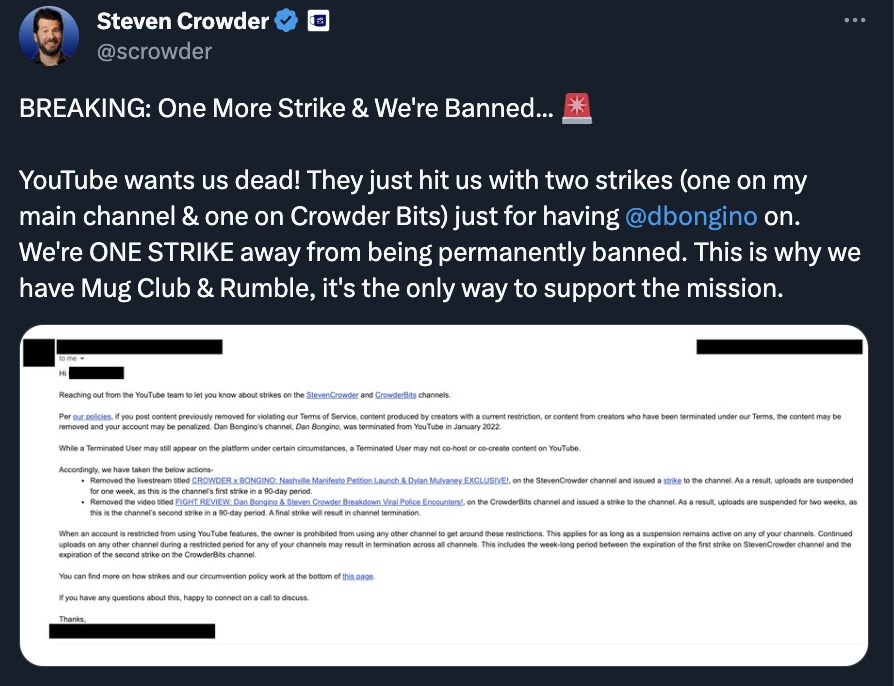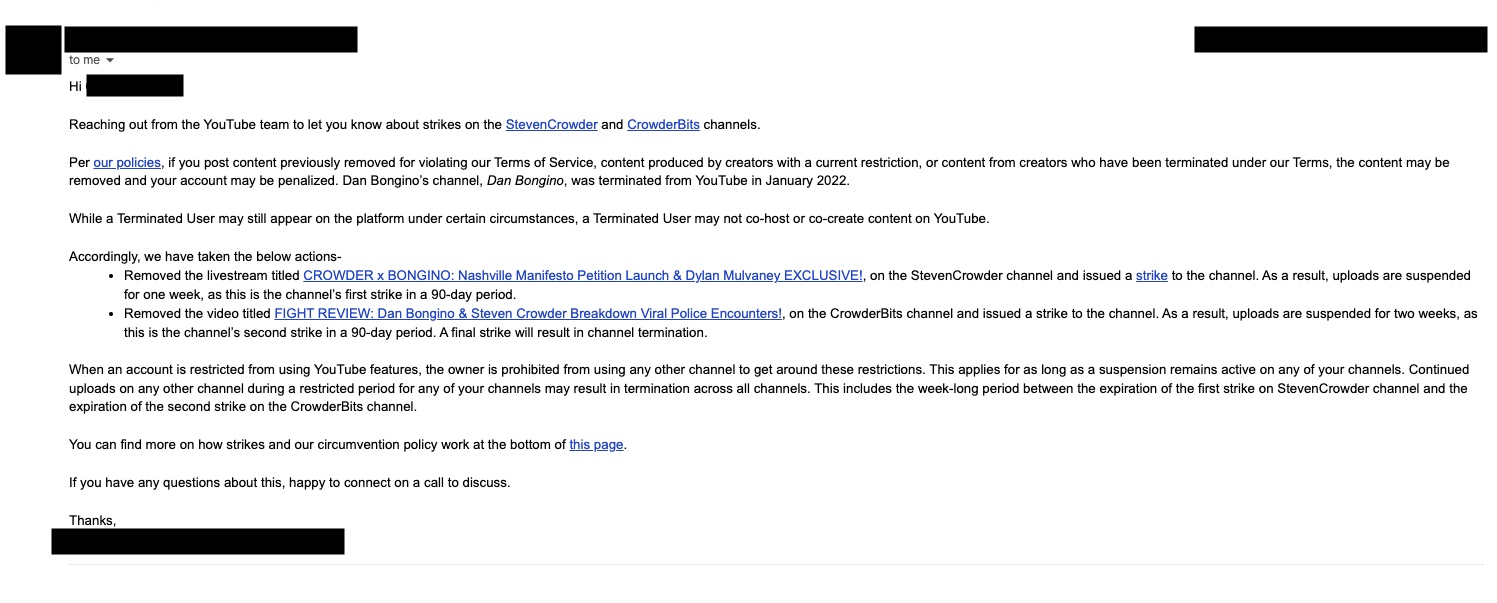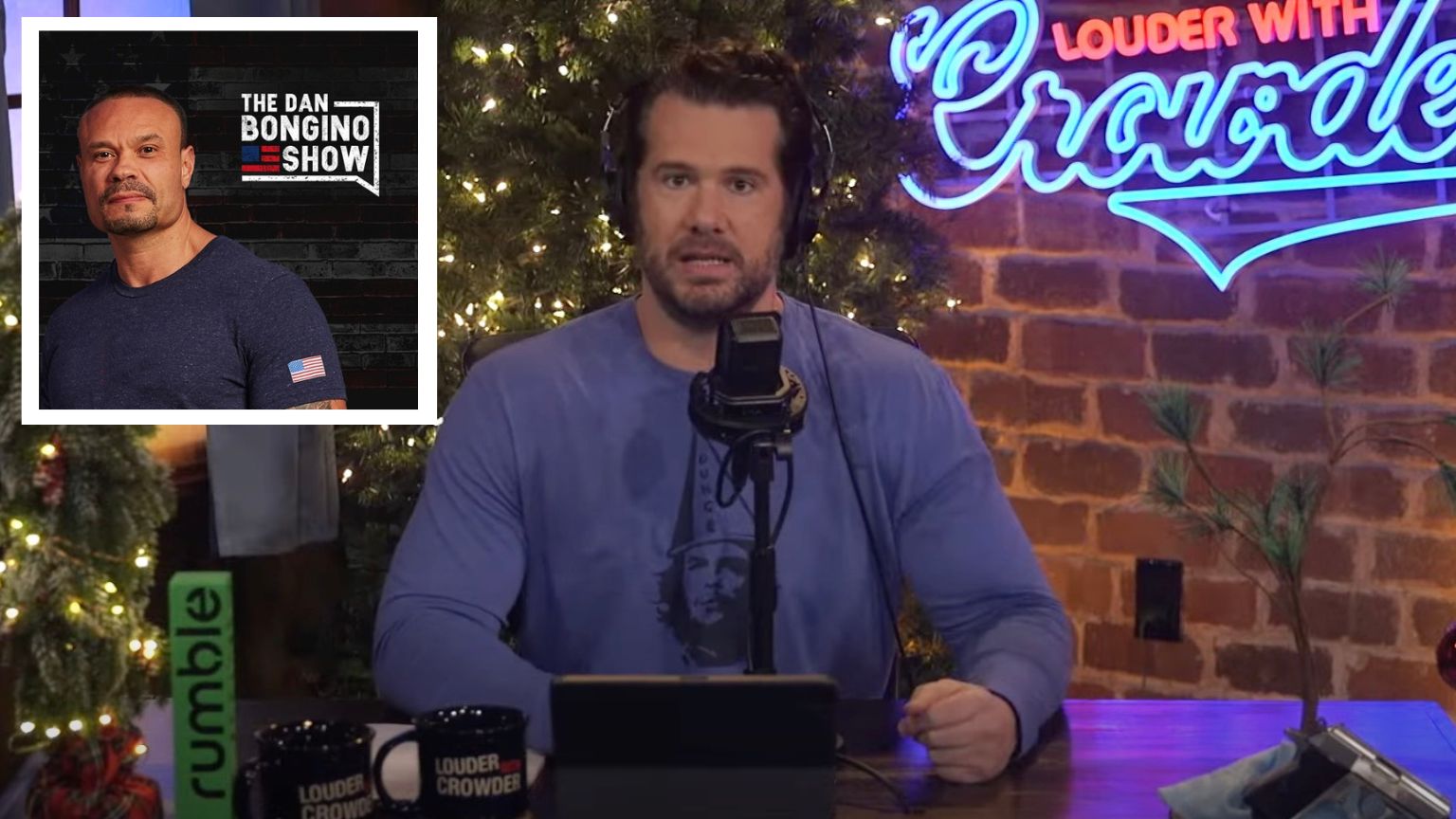Popular political commentator Stephen Crowder has urged people to switch to Rumble after he announced that YouTube has suspended his channel and removed a video featuring his guest, fellow commentator Dan Bongino.
The incident follows a livestream event titled “Crowder X Bongino Joint Livestream.”

Crowder expressed frustration over the platform’s decision, describing it as “stupid” and highlighting the absurdity of being penalized for a video collaboration.
He pointed out the inconsistency in YouTube’s policies, noting that while his interview with Bongino did not breach terms of service, the scenario led to a suspension.
YouTube’s action appears to stem from a policy regarding content creators who have been previously banned from the platform. Dan Bongino’s own YouTube channel was terminated in January 2022 and he was made persona non grata by YouTube, leading to a complex situation where his appearance on another channel, in this case, Crowder’s, resulted in a policy violation.
However, according to YouTube’s own admission, banned people can still appear on other channels as long as they are only doing so in a guest capacity.
“While a Terminated User may still appear on the platform under certain circumstances, a Terminated User may not co-host or co-create content on YouTube,” YouTube’s email to Crowder states. Bongino was, in fact, a guest on Crowder’s show, meaning that it’s unclear why YouTube itself is ignoring this distinction.

Crowder, known for his strong opinions and humorous content, remarked on the irony of YouTube employees’ actions following their Thanksgiving break.
As a response to the suspension, Crowder advised his audience to tune into his upcoming show on Tuesday for a more detailed discussion on the matter. He reassured his followers on MugClub and Rumble that they would continue to have access to his content without interruption.
This incident has raised questions about the enforcement of YouTube’s policies and the challenges faced by content creators in navigating these rules. Crowder’s outspoken criticism of the platform’s decision reflects a growing debate over free speech and content moderation on social media.













